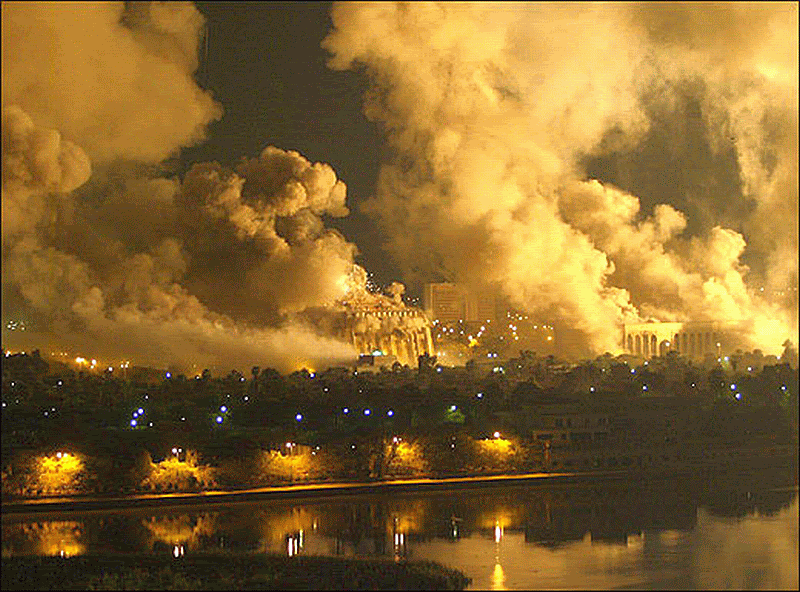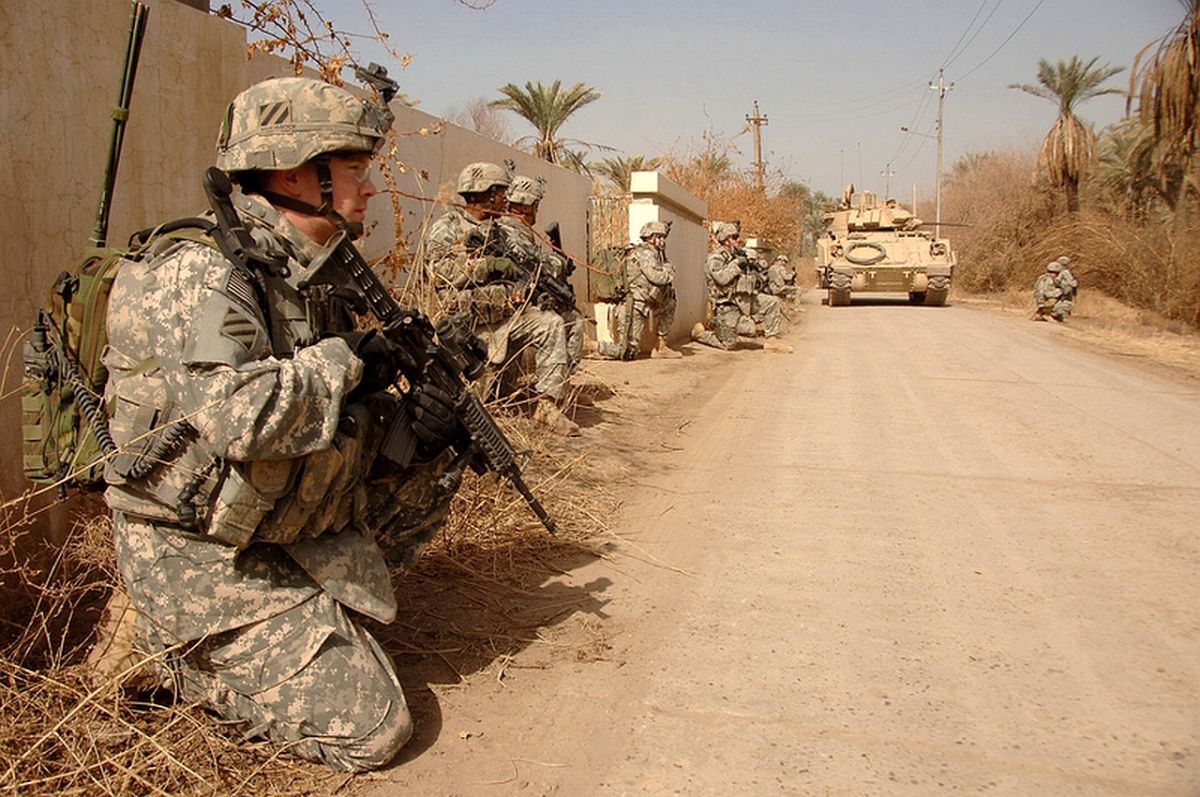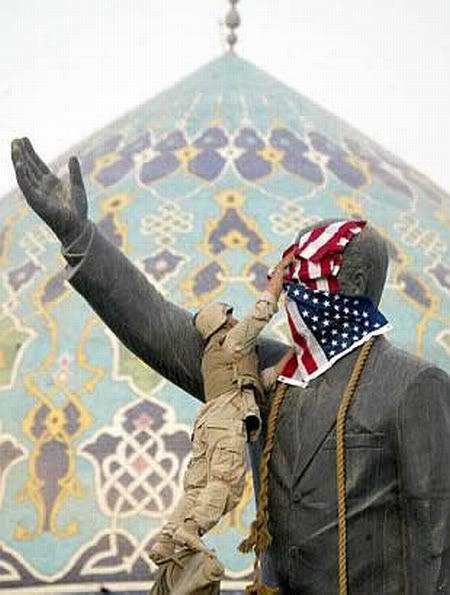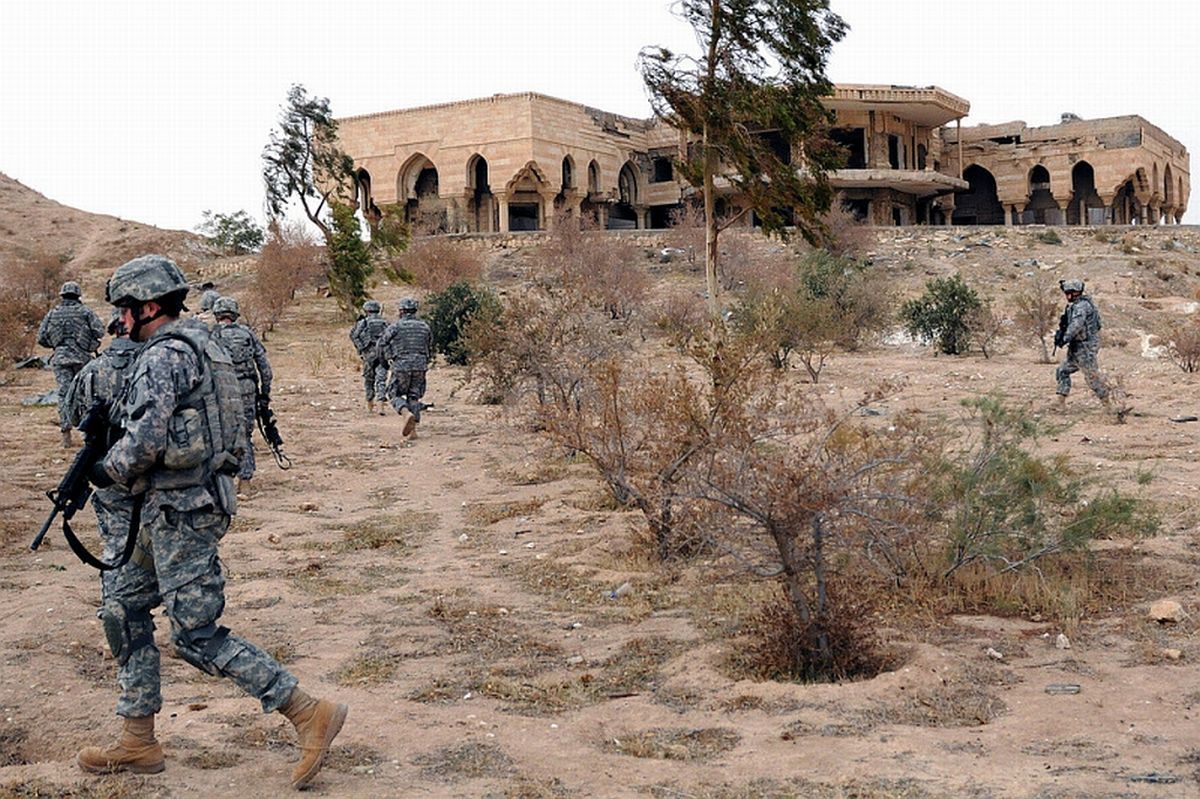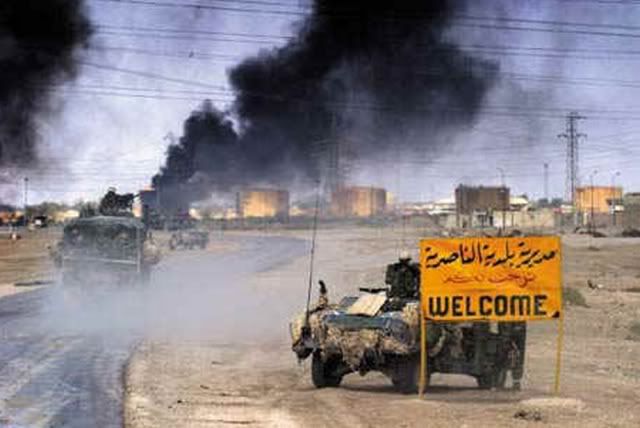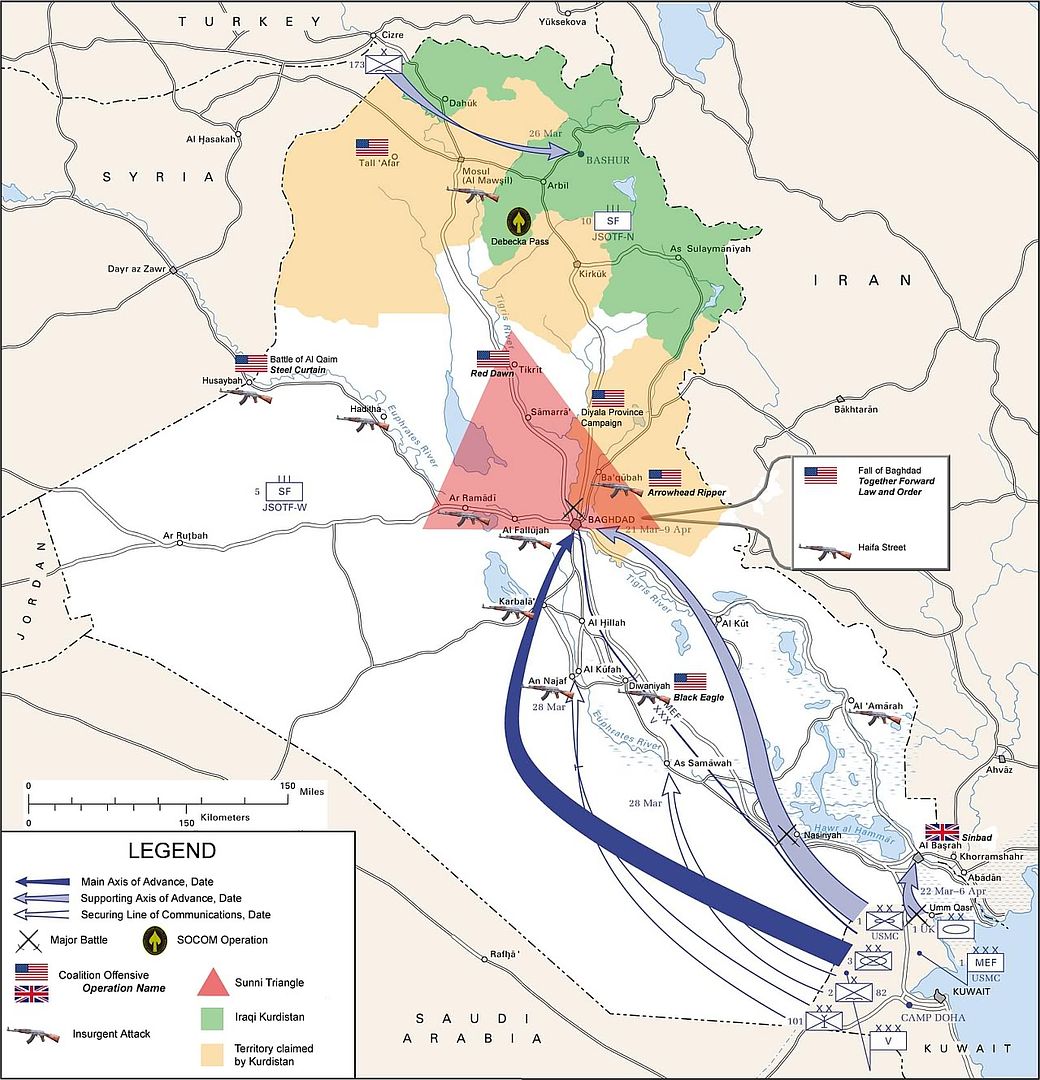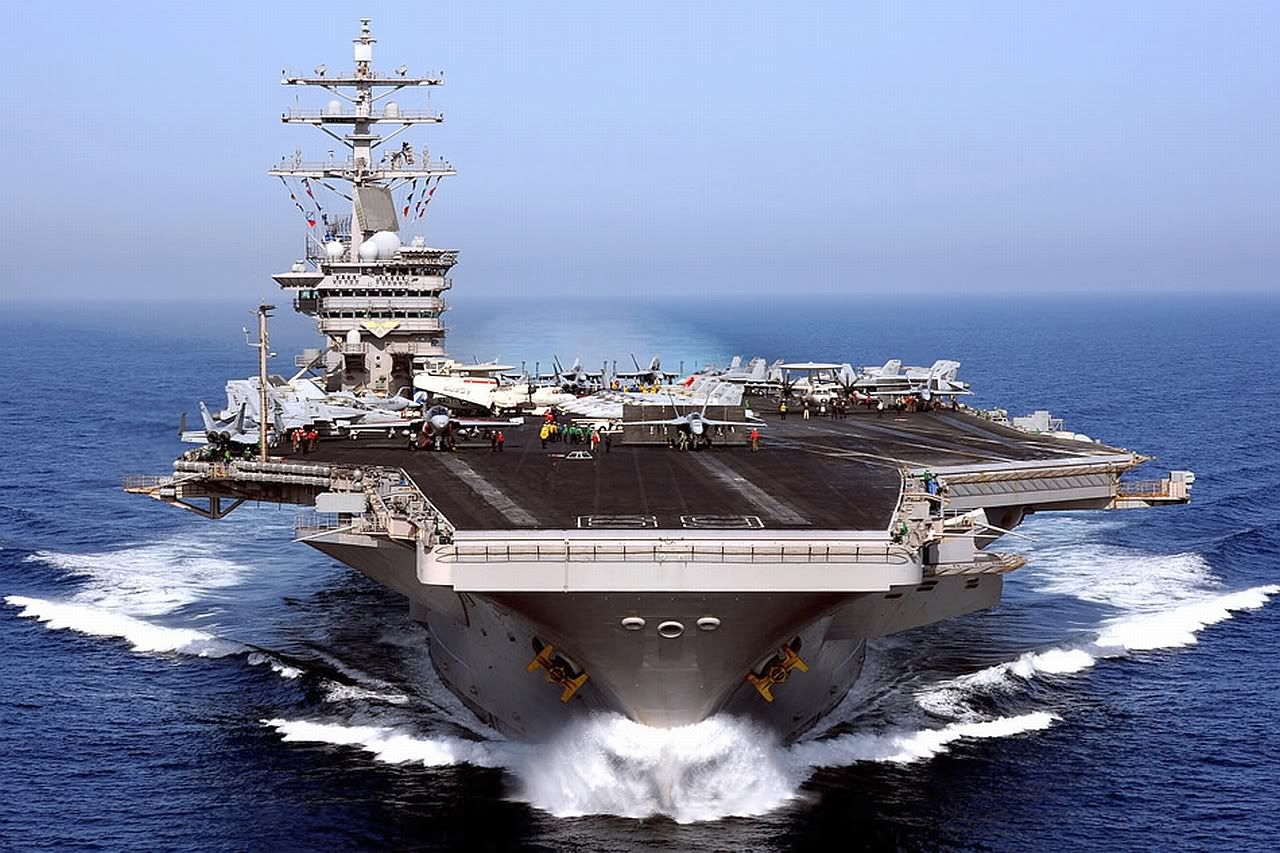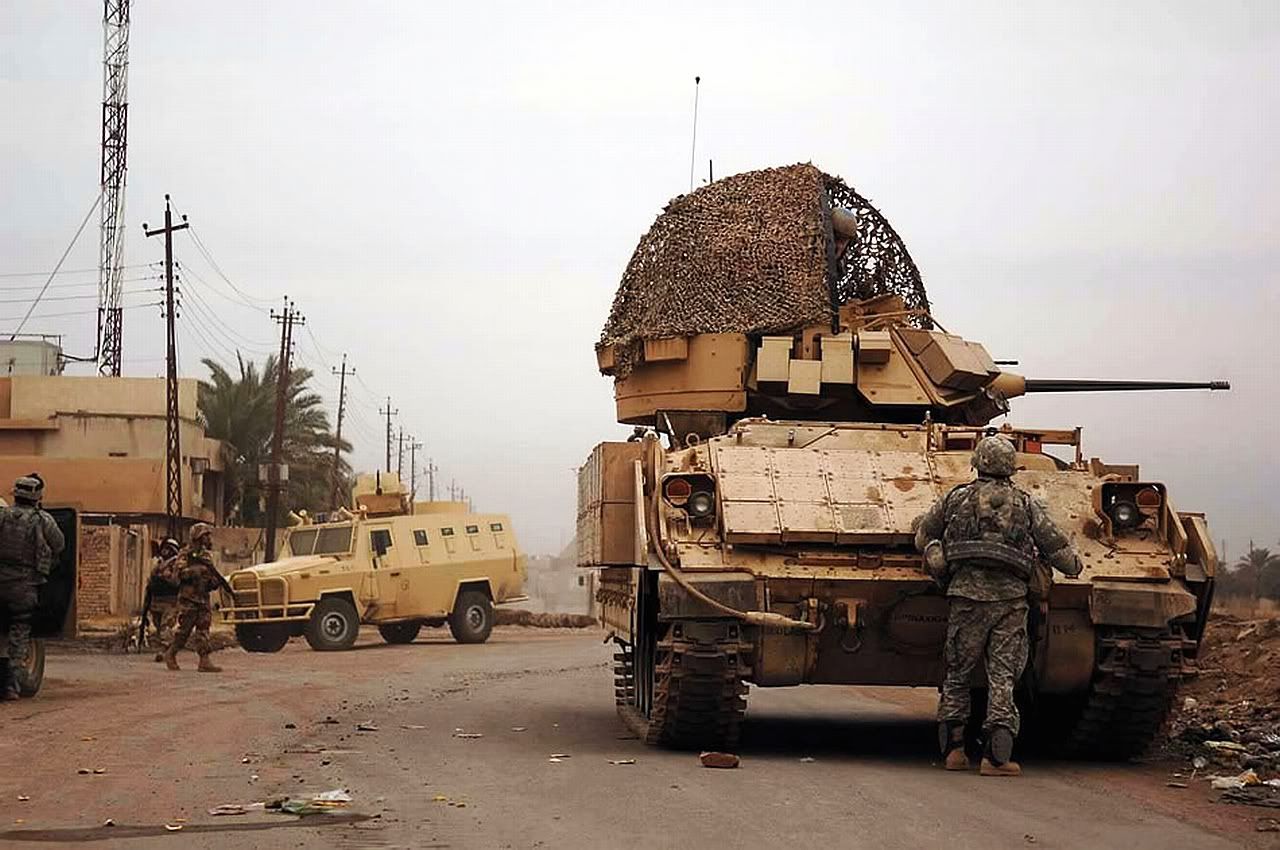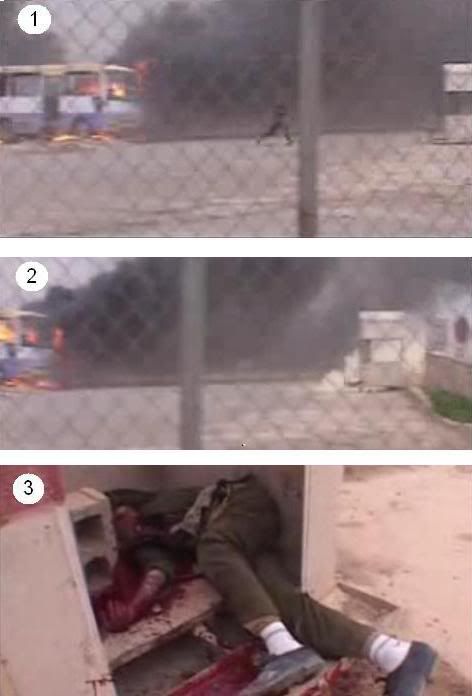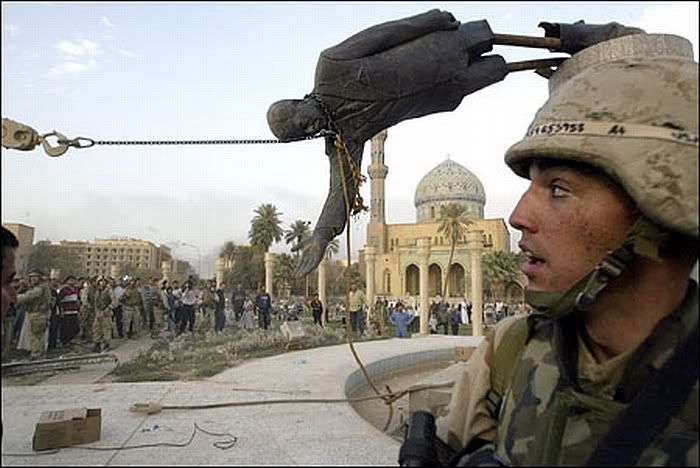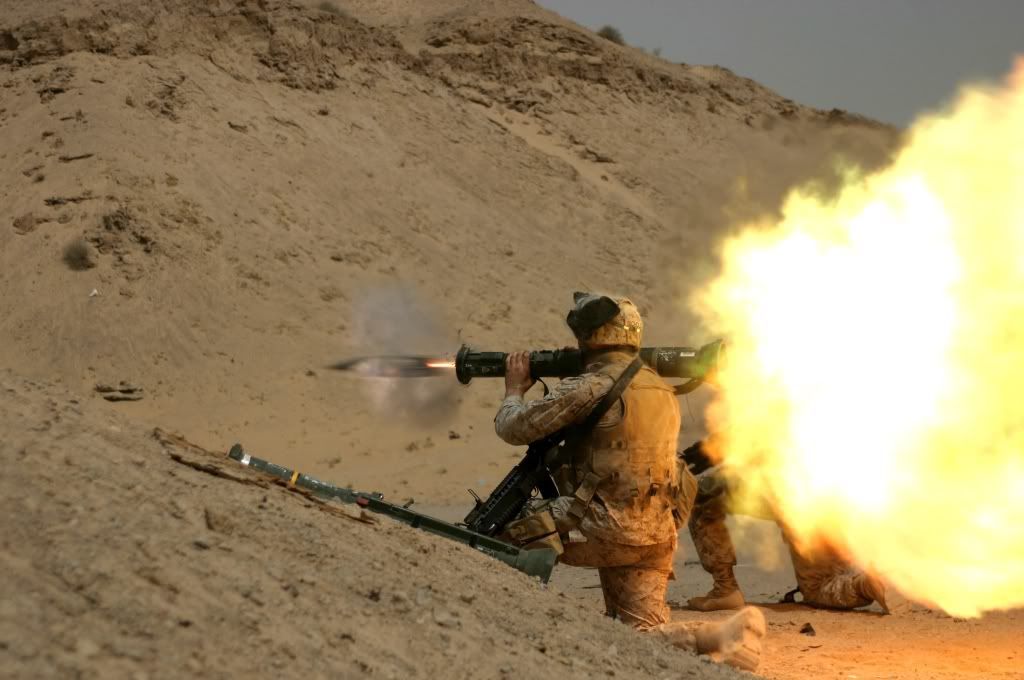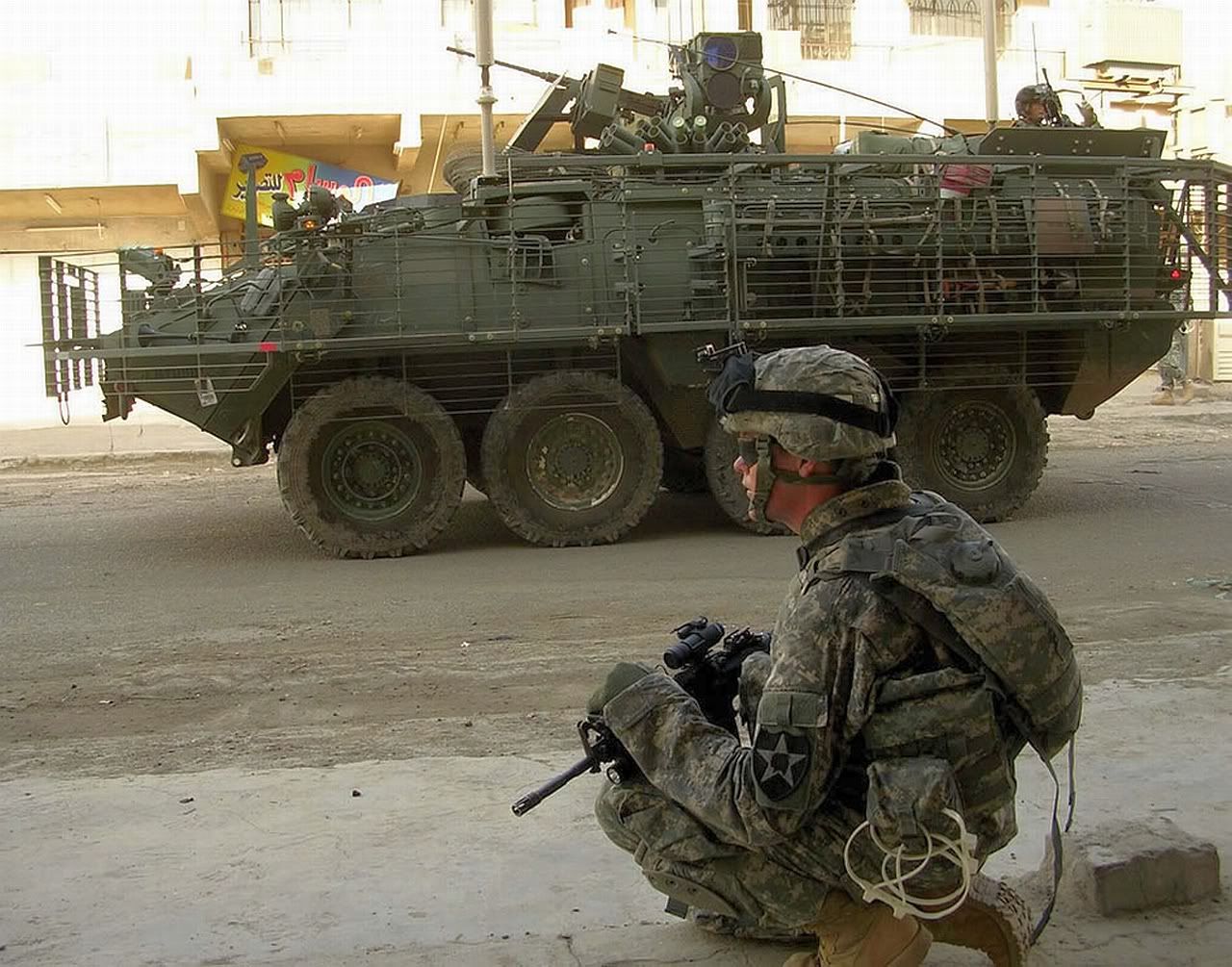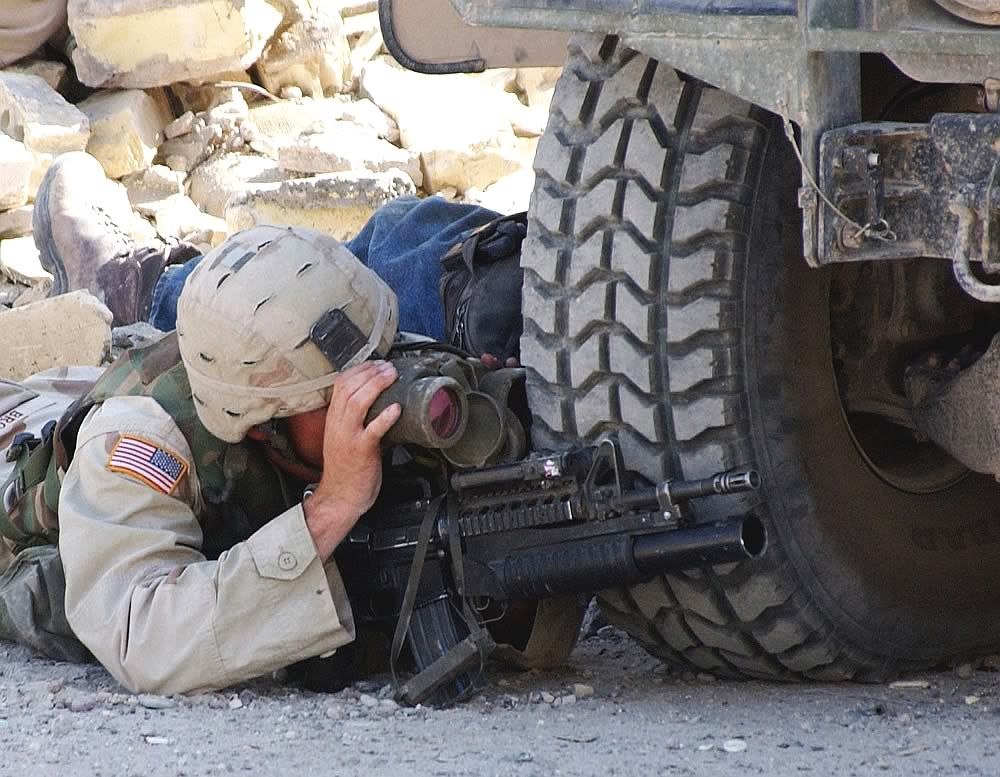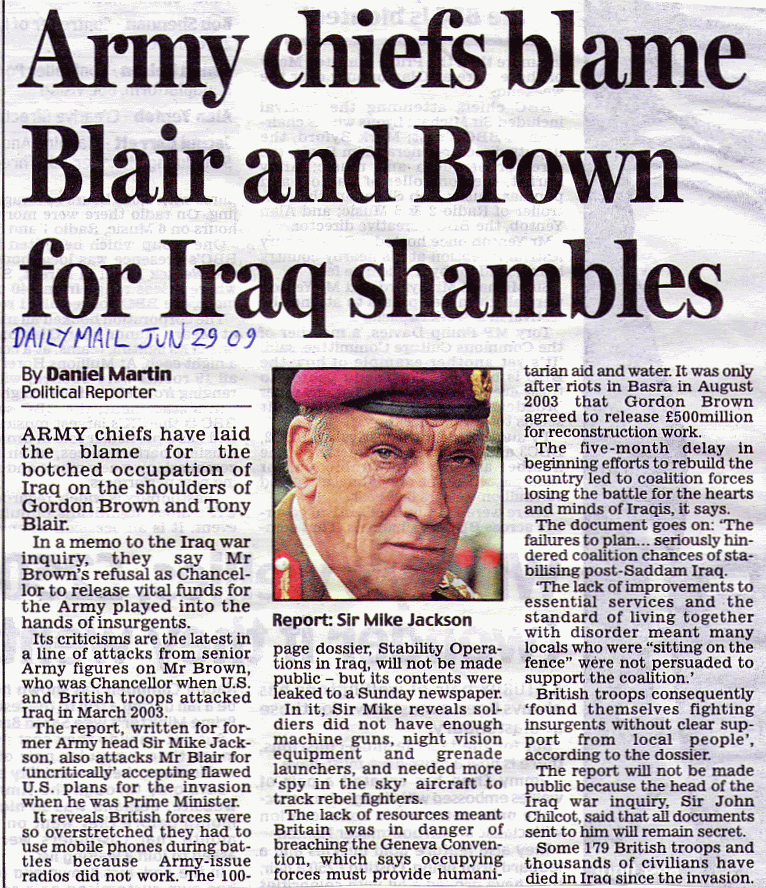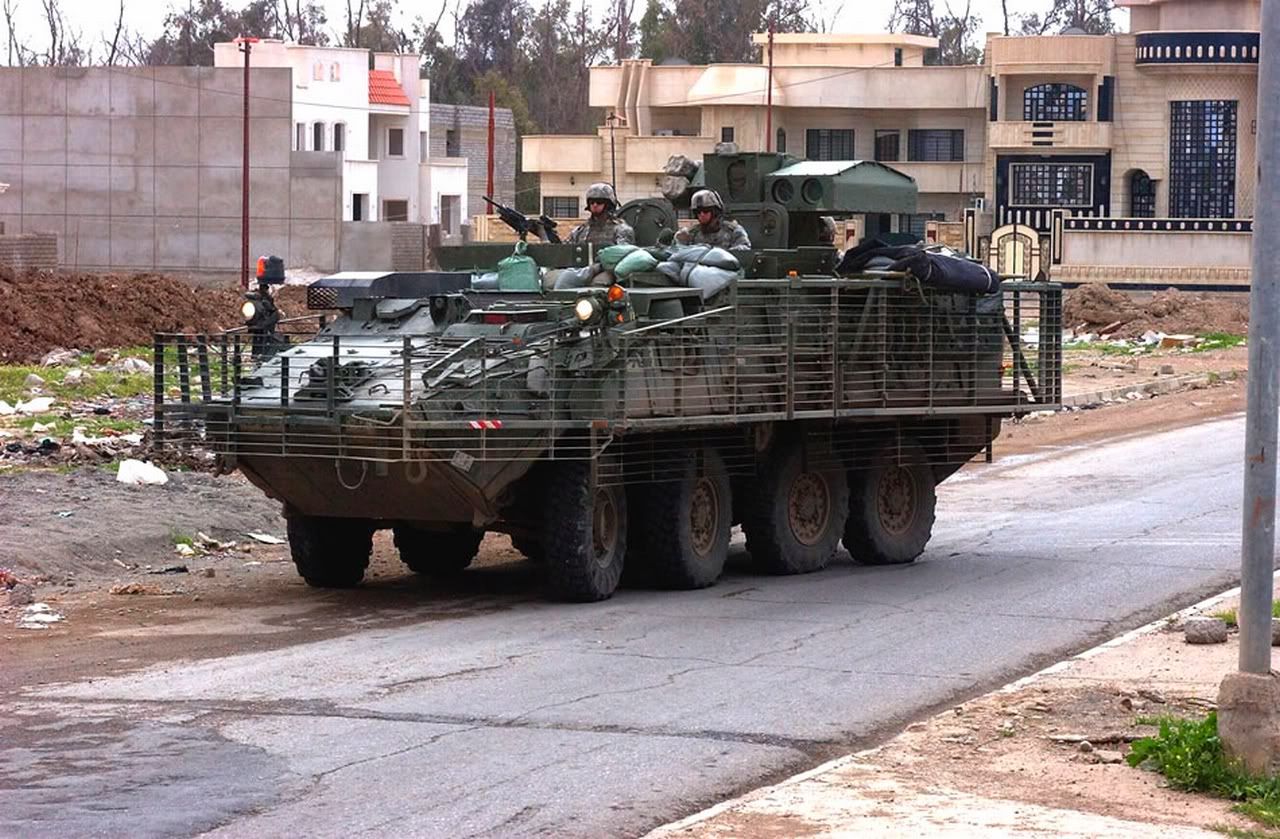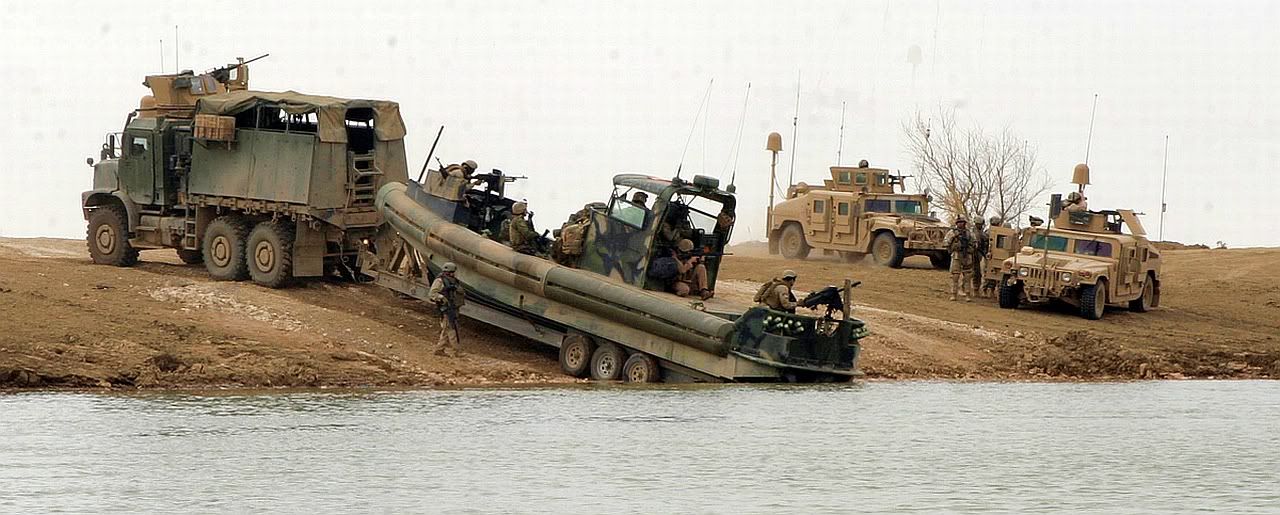The Iraq War, also known as the Second Gulf War, the Occupation of Iraq, or Operation Iraqi Freedom, is an ongoing military campaign which began on March 20, 2003 with the invasion of Iraq by a multinational force now led by and composed almost entirely of troops from the United States and United Kingdom.
Prior to the war, the governments of the U.S., U.K, and Spain claimed that Iraq's alleged possession of weapons of mass destruction (WMD) posed an imminent threat to their security and that of their coalition allies.
United Nations weapons inspectors found no evidence of WMD, giving support to earlier criticism of poor intelligence on the subject.
After the invasion, the U.S.-led Iraq Survey Group concluded that Iraq had ended its WMD programs in 1991 and had no active programs at the time of the invasion, but that they intended to resume production if the Iraq sanctions were lifted.
Although some degraded remnants of misplaced or abandoned chemical weapons from before 1991 were found, they were not the weapons for which the coalition invaded.
Some U.S. officials also accused Saddam Hussein of harboring and supporting Al-Qaeda, but no evidence of any collaborative relationship was ever found.
Other reasons for the invasion stated by U.S. officials included Iraq's financial support for the families of Palestinian suicide bombers, Iraqi government human rights abuses, and an effort on the part of the coalition forces to spread democracy in the country and region. Some officials said Iraq's oil reserves were a factor in the decision to invade, but other officials denied this.
The invasion led to the quick defeat of the Iraqi military, and the eventual capture and execution of Saddam Hussein. The U.S.-led coalition occupied Iraq and attempted to establish a new democratic government.
However, violence against coalition forces and among various sectarian groups soon led to asymmetric warfare with the Iraqi insurgency, strife between many Sunni and Shia Iraqi groups, and al-Qaeda operations in Iraq.
The number of Iraqis killed through 2007 ranges from "a conservative cautious minimum" of more than 85,000 civilians to a survey estimate of more than 1,000,000 citizens.
UNHCR estimates the war uprooted 4.7 million Iraqis through April 2008 (about 16% of the population of Iraq), two million of whom had fled to neighbouring countries fleeing a humanitarian situation that the Red Cross described in March 2008 as "among the most critical in the world".
In June 2008, U.S. defense officials claimed security and economic indicators began to show signs of improvement in what they hailed as significant and fragile gains. In August 2008, Iraq was fifth on the Failed States Index.
Member nations of the Coalition withdrew their forces as public opinion favoring troop withdrawals increased and as Iraqi forces began to take responsibility for security.
In late 2008, the U.S. and Iraqi governments approved a Status of Forces Agreement effective through January 1, 2012. The Iraqi Parliament also ratified a Strategic Framework Agreement with the U.S., aimed at ensuring international cooperation in constitutional rights, threat deterrence, education, energy development, and other areas.
In late February 2009, U.S. President Barack Obama announced an 18-month withdrawal window for "combat forces", leaving behind 30,000 to 50,000 troops "to advise and train Iraqi security forces and to provide intelligence and surveillance".
General Ray Odierno, the top U.S. military commander in Iraq, said he believes all U.S. troops will be out of the country by the end of 2011. Iraqi Prime Minister Nouri al-Maliki has said he supports the accelerated pullout of U.S. forces.
__________________
Prior to the war, the governments of the U.S., U.K, and Spain claimed that Iraq's alleged possession of weapons of mass destruction (WMD) posed an imminent threat to their security and that of their coalition allies.
United Nations weapons inspectors found no evidence of WMD, giving support to earlier criticism of poor intelligence on the subject.
After the invasion, the U.S.-led Iraq Survey Group concluded that Iraq had ended its WMD programs in 1991 and had no active programs at the time of the invasion, but that they intended to resume production if the Iraq sanctions were lifted.
Although some degraded remnants of misplaced or abandoned chemical weapons from before 1991 were found, they were not the weapons for which the coalition invaded.
Some U.S. officials also accused Saddam Hussein of harboring and supporting Al-Qaeda, but no evidence of any collaborative relationship was ever found.
Other reasons for the invasion stated by U.S. officials included Iraq's financial support for the families of Palestinian suicide bombers, Iraqi government human rights abuses, and an effort on the part of the coalition forces to spread democracy in the country and region. Some officials said Iraq's oil reserves were a factor in the decision to invade, but other officials denied this.
The invasion led to the quick defeat of the Iraqi military, and the eventual capture and execution of Saddam Hussein. The U.S.-led coalition occupied Iraq and attempted to establish a new democratic government.
However, violence against coalition forces and among various sectarian groups soon led to asymmetric warfare with the Iraqi insurgency, strife between many Sunni and Shia Iraqi groups, and al-Qaeda operations in Iraq.
The number of Iraqis killed through 2007 ranges from "a conservative cautious minimum" of more than 85,000 civilians to a survey estimate of more than 1,000,000 citizens.
UNHCR estimates the war uprooted 4.7 million Iraqis through April 2008 (about 16% of the population of Iraq), two million of whom had fled to neighbouring countries fleeing a humanitarian situation that the Red Cross described in March 2008 as "among the most critical in the world".
In June 2008, U.S. defense officials claimed security and economic indicators began to show signs of improvement in what they hailed as significant and fragile gains. In August 2008, Iraq was fifth on the Failed States Index.
Member nations of the Coalition withdrew their forces as public opinion favoring troop withdrawals increased and as Iraqi forces began to take responsibility for security.
In late 2008, the U.S. and Iraqi governments approved a Status of Forces Agreement effective through January 1, 2012. The Iraqi Parliament also ratified a Strategic Framework Agreement with the U.S., aimed at ensuring international cooperation in constitutional rights, threat deterrence, education, energy development, and other areas.
In late February 2009, U.S. President Barack Obama announced an 18-month withdrawal window for "combat forces", leaving behind 30,000 to 50,000 troops "to advise and train Iraqi security forces and to provide intelligence and surveillance".
General Ray Odierno, the top U.S. military commander in Iraq, said he believes all U.S. troops will be out of the country by the end of 2011. Iraqi Prime Minister Nouri al-Maliki has said he supports the accelerated pullout of U.S. forces.
__________________






































